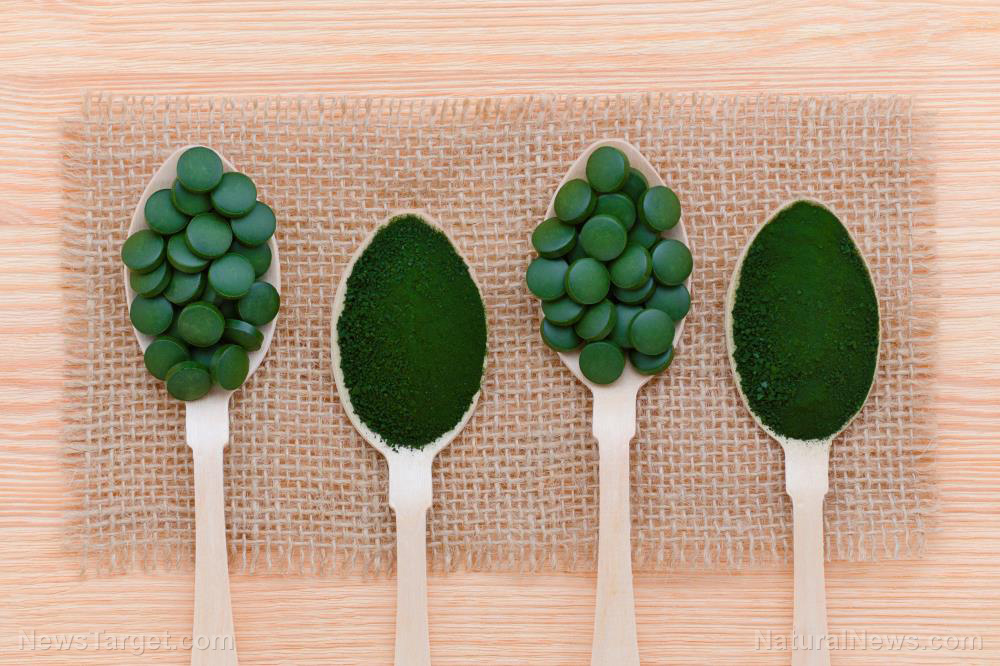Keep your heart and bone health a-ok by increasing intake of vitamin K
12/29/2019 / By Michael Alexander

A person’s risk of developing heart and bone diseases increases with age. Fortunately, there’s an effective and natural way of reducing this risk. Research suggests increasing your intake of vitamin K can improve your heart and bone health.
According to an article published in Integrative Medicine: A Clinicians Journal, adequate vitamin K intake — specifically, vitamin K2 or menaquinone — can lower calcium-related health risks such as arterial stiffness. Arterial stiffness is caused by the buildup of calcium salts in the walls of blood vessels (calcification). Too many calcium deposits can eventually lead to vascular damage.
High intake of calcium supplements increases the risk of heart disease by accelerating calcification in the arteries. But studies have found that increasing the intake of vitamin K — a nutrient that promotes normal blood clotting and wound healing — can put a stop to that. This is because vitamin K — particularly vitamin K2 — promotes calcification in the bones instead of in blood vessels.
“Vitamin K2 promotes arterial flexibility by preventing accumulation of arterial calcium, and supplementation with it could correct calcium amounts in the body that are out of balance,” wrote Katarzyna Maresz, the author of the study.
Maresz noted that striking the right balance between calcium and vitamin K2 intake is important as this could be a potential strategy for fighting osteoporosis and preventing the calcification and stiffening of the arteries.
In the article, Maresz also highlighted the results of two earlier studies which demonstrated that adequate menaquinone intake is important for the prevention of cardiovascular disease. According to the Centers for Disease Control and Prevention (CDC), heart disease claims 610,000 lives in the U.S. annually. (Related: Vitamin K helps prevent diabetes.)

Vitamin K: sources and considerations
The two forms of vitamin K, vitamin K1 and K2, are primarily found in healthy foods. Green leafy vegetables are the best sources of vitamin K1, while vitamin K2 has microbial origins and is mostly found in fermented foods. Vitamin K1, also known as phylloquinone, is the major dietary form of vitamin K.
While instances of overt vitamin K deficiency are rare in healthy adults, experts recommend keeping an eye out for symptoms such as excessive bleeding, bruising, small blood clots under the nails, bleeding in the body’s mucus membranes and bloody stools. Long-term vitamin K deficiency can lead to low bone mineral density, tooth decay, certain cancers and cognitive impairment.
Despite the extensive selection of vitamin K supplements on the market, it is still best to obtain vitamin K from dietary sources. These include organic, non-GMO vegetables and foods like fish, eggs, meat and whole grain cereals. Adult males should get at least 120 micrograms (mcg) of vitamin K daily, while females need at least 90 mcg a day.
To increase your intake of vitamin K1, eat plenty of green leafy vegetables such as kale, mustard greens, collard greens, Swiss chard, spinach, broccoli and Brussels sprouts. Foods that contain plenty of vitamin K2 are beef liver, eggs, cheese and fermented products like natto and yogurt.
Vitamin K can interfere with the activity of certain medications, such as blood thinners and anticoagulants. If you are taking any of these medications, consult with your healthcare provider on how best to adjust your diet and maintain normal vitamin K levels.
Sources include:
Submit a correction >>
Tagged Under:
aging secrets, alternative medicine, bone health, calcium, disease prevention, food cures, food is medicine, functional food, heart disease, heart health, natural cures, natural medicine, nutrients, prevention, research, supplements, veggie, Vitamin K, vitamins
This article may contain statements that reflect the opinion of the author





















